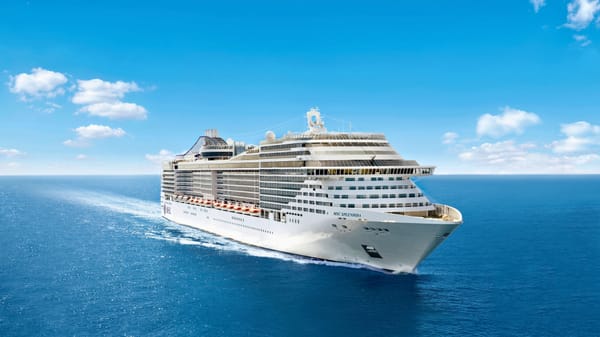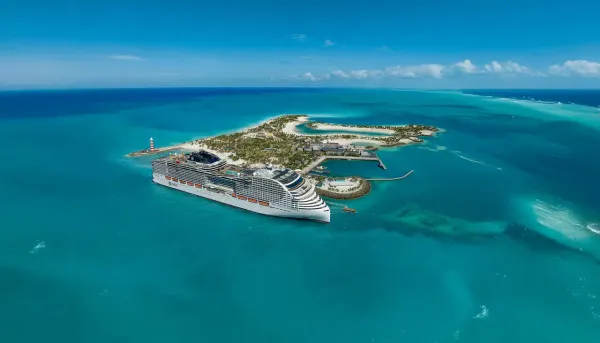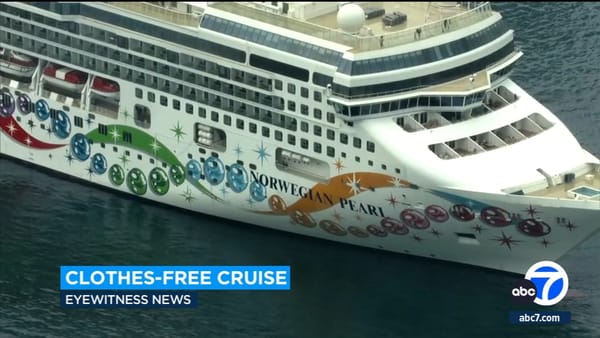Protests Disrupt Israeli Cruise Ships at Greek Ports, Raising Tourism Fears
Escalating protests over Israeli cruise ships in Greek ports highlight the intersection of regional conflict, public dissent, and economic risks for Greece’s vital tourism sector.

Riot police in Greece have increasingly found themselves at the center of escalating tensions as protests target Israeli cruise ships docking at Greek ports. This wave of demonstrations stems from widespread anti-Israel sentiment linked to the ongoing Israeli-Hamas conflict, with pro-Palestinian activists spotlighting Greek-Israeli relations in a bid to condemn Israel’s military actions in Gaza. The most recent protests have focused on the Crown Iris, operated by Mano Maritime, facing disruptions at ports including Syros, Rhodes, Crete, and Piraeus near Athens.
Protests Escalate Across Key Greek Ports
At Syros, over 150 protesters blocked disembarkation for around 1,600 passengers aboard the Crown Iris, displaying Palestinian flags and banners with messages such as “Stop the Genocide” and “Free Palestine.” As a result, the vessel departed prematurely for Cyprus. Local media described the atmosphere at the port as tense, although no violence was reported. At Rhodes, minor clashes between activists and riot police broke out, but passengers disembarked without incident. Similarly, in Piraeus, riot police created a cordon with buses to prevent several hundred demonstrators, who chanted anti-Israel slogans and waved Palestinian flags, from approaching the ship.
Reports from protest organizers included allegations of off-duty Israeli soldiers among the passengers; however, these claims have not been independently verified. Greek police and coast guard officials confirm that the ship’s routes and security measures were adjusted in response to safety concerns. Despite the disruptions, Mano Maritime characterized the incidents as isolated and noted that other port calls along the vessel’s itinerary proceeded more smoothly.
Greek Officials and Business Community React
The protests have sparked mixed reactions among Greek officials and local communities. Health Minister Adonis Georgiadis condemned the events in Syros, labeling them “racist” and stating, “Antisemitism has no place in Greece’s tourism sector.” He added, “We owe an apology to these friends of Greece who chose to spend their holidays here and were forcibly denied it by some.”
The demonstrations have brought heightened scrutiny to the country’s image as a hospitable vacation destination. Local business representatives in Syros and Rhodes have voiced concerns that repeated disruptions could have long-term consequences for tourism. “These protests hurt local businesses that rely heavily on the cruise ship traffic,” one representative said, emphasizing fears of reputational damage to the islands.
Impact on Greece’s Tourism Industry
Greece has long been popular with Israeli travelers, and the Crown Iris symbolizes growing connectivity between the two countries. However, the recent protests have complicated the ship’s operations, with one planned six-hour port call in Syros canceled outright. Onboard announcements advised passengers to remain inside the vessel during demonstrations, further straining the experience for tourists.
The tourism industry, heavily dependent on international visits, could face challenges if tensions discourage cruise operators from choosing Greek ports. Mano Maritime has acknowledged the challenges of operating Israeli-owned cruise lines, which protest organizers have often singled out for demonstration. While such incidents remain sporadic, the cumulative effect of political controversy and passenger restrictions could influence future cruise itineraries across the Eastern Mediterranean.
Greek-Israeli Relations Under Scrutiny
The protests have reignited debates about Greece’s strengthening ties with Israel under Prime Minister Kyriakos Mitsotakis, who has cultivated economic and military cooperation with his Israeli counterpart, Benjamin Netanyahu. Tensions are further exacerbated by left-wing opposition parties urging the conservative government to sever military agreements with Israel in light of allegations of human rights violations in Gaza. Greece’s stance has drawn criticism from activists who argue that closer ties undermine the country’s commitment to international humanitarian principles.
Diplomatically, the incidents have triggered responses from Israel as well. Israeli Foreign Minister Gideon Saar reportedly contacted his Greek counterpart following the Syros protests, though the details of their discussions remain confidential. The controversy underscores the intricate balancing act for Greek policymakers: maintaining economic partnerships with Israel while addressing growing domestic discontent over their implications.
Security Measures and Legal Challenges
The Greek government has taken steps to manage security at affected ports while pledging to prosecute individuals who obstruct the legal rights of international tourists. However, activists have framed their demonstrations as peaceful expressions of free speech, challenging law enforcement’s ability to navigate jurisdictional complexities.
Heightened security measures and visible police presence have become the norm at ports such as Piraeus and Rhodes. In some cases, operations have been delayed or adjusted, with authorities prioritizing the safety of passengers and crew. Meanwhile, protests highlighting alleged military-linked cargo transfers and the involvement of off-duty Israeli soldiers have added new layers of controversy and public scrutiny to the broader geopolitical dynamics.
Frequently Asked Questions (FAQs)
Why are Israeli cruise ships facing protests in Greece?
Protesters attribute the demonstrations to Israel’s military actions in Gaza and its blockade on aid reaching Palestinians. They oppose the Greek government’s deepening ties with Israel, targeting Israeli-owned vessels to amplify their message internationally.
What happened during the protests in Syros?
Protesters prevented passengers from disembarking by assembling at the Syros port with banners and Palestinian flags. The Crown Iris, with about 1,600 passengers on board, left for Cyprus earlier than scheduled due to safety concerns.
How has Greece responded to these incidents?
The Greek government has pledged to prosecute individuals obstructing tourists and deployed riot police to manage port security. Officials, including the health minister, have condemned the protests for damaging Greece’s reputation as a welcoming destination.
What economic impact could these protests have?
The disruptions risk affecting Greece’s tourism-dependent economy, especially in port cities such as Syros and Rhodes. Concerns about ongoing tensions could also deter future cruise operators from scheduling Greek stops.
What are the broader diplomatic implications of the protests?
The protests highlight public dissent against Greece’s close relationship with Israel. Opposition parties have called for reevaluating bilateral agreements, while the Greek government continues to maintain strong diplomatic and economic ties with Israel.




